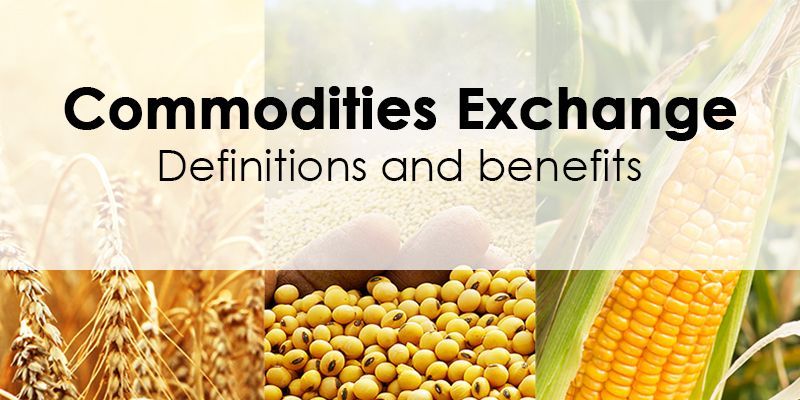Reading time:4 min read
A Definitional Guide To Understanding Commodities Exchanges
There are many benefits for individuals and nation states in having a well-established and efficient commodities exchange. On the national level, commodities exchanges are critical drivers of economic development and transformation, which present benefits to citizens of the nation in the areas of wealth and job creation. Benefits of commodities exchanges also include improvement of market transparency - making it easier for players in the commodities value chain to make informed decisions, and hedge against price fluctuations.
Despite the numerous benefits of commodities exchanges, limited understanding of the concept hinders adequate participation in the commodities market. Here we present a definitional guide for commodities exchanges to facilitate understanding.
Investopedia’s Definition of a Commodities Exchange
Investopedia defines a commodities exchange as "a legal entity that determines and enforces rules and procedures for the trading of standardized commodity contracts and related investment products."
Business Dictionary’s Definition of a Commodities Exchange
Business Dictionary breaks that down even further in explaining commodities exchanges as an open and organized marketplace where ownership titles to standardized quantities or volumes of certain commodities (at a specified price and to be delivered on a specified date) are traded by its members.
Key Words/ Phrases to Understand
- Legal entity: The designation of a commodities exchange as a legal entity explains its capacity to enforce contracts and agreements with the ability to assume an obligation and discharge indebtedness.
- Standardized commodity contracts: Also known as futures contracts, these are agreements to buy or sell a predetermined amount of a commodity at a specific price on a specific date in the future.
- Organized marketplace: Refers to commodities exchanges being a securities marketplace where purchasers and sellers regularly gather to trade securities according to the formal rules adopted by the exchange.
- Standardized quantities or volumes: This signifies the requirement in a commodities exchange that specific stipulations of quantity, quality, price and date of delivery of the commodity are made clear in the contracts.
- Commodities: These are the goods, property or assets that can be bought or sold on an exchange. They are mainly raw materials or agricultural products; goods that get mined or grown, and their value is intrinsic based on market supply and demand making them distinguishable from securities. Commodities are typically divided into two main categories - hard commodities which are raw materials that are mined or extracted like gold and oil, and soft commodities which include agricultural products and livestock.
Putting it all together - What is a Commodities Exchange
A commodities exchange is an open and regulated market where people can trade in standardized futures contracts. This means, in simple terms, that they get into agreements to buy or sell specific quantities of raw materials or other primary products at a specific price for delivery on a future (specified) date. On the side of the buyer there is an agreement to accept delivery of the commodity on the agreed upon date, and on the side of the seller there is an agreement to deliver the commodity on the agreed upon date. Exchanges primarily present a benefit of managing price risks to buyers and sellers, but they particularly help sellers to improve the marketing of their physical products.
Commodities exchanges are typically categorized in three ways: metals exchanges, fuels exchanges, and soft commodity exchanges or agricultural exchanges. No matter the type, commodities exchanges provide three basic functions: price transparency, price discovery and reduced transaction costs. By simply centralizing trade in a certain commodity, an exchange facilitates title transfer, market transparency, and price discovery.
Benefits of Commodities Exchanges
Through the length of this article we have mentioned some benefits of commodities exchanges, and below we spell out five main benefits of a well established commodities exchange.
- Commodities exchanges provide a ready and continuous market for the purchase and sale of commodities. This enables the producer to be independent of middlemen and therefore to derive more value from their production activities.
- They provide hedging facilities, which make them necessary in reducing fluctuations in price of raw material and consequently also reducing fluctuations in the price of finished products.
- Commodities exchanges provide the producers an opportunity to transfer their risk to the professional risk-bearers.
- By providing continuity in the trading of commodities, commodities exchanges induce bankers and financiers to lend against commodities.
- Commodities exchanges provide facilities and opportunities for arbitrating and thus equalizing the price levels of commodities at various centers
Consult our FAQs to learn more about commodities exchanges.
